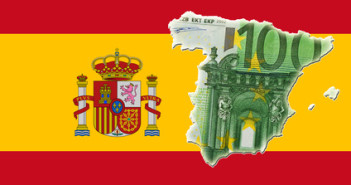Spain will likely submit a formal aid request during August, and this will open the door for ECB help. However, Spain doesn’t have any more planned bond auctions during this month, and could take its time, before a showdown in September.
If Spain takes its time, this could be very problematic, as the country already faces serious trouble in all parts of the economy. However, there is little room for reforms now, as the political credit fell together with Spain’s credit rating.
Central Government Tiptoeing
As Spain’s PM Mariano Rajoy already admitted more than once, Spanish institutions are shut out of money markets. So while the Spanish government still has access and doesn’t need money in August, banks, corporates, regions and municipalities have no mercy from the markets and could lean on the central government.
This could cost Spain with another loss of credit rating – the country is already close to junk status and it will not take much for Spain’s bonds to get the junk label.
Money is already leaving Spain at an accelerating pace. The sooner ECB money flows into Spain, the better.
However, support for Europe is eroding in one of the most euro-supportive countries of Europe. First serious call to leave the euro in Spain by Francisco Alvarez Cascos of Asturias called for Spain to leave the euro-zone. Membership in the euro and in Europe is still popular in Spain, which still remembers the isolation during the years of the dictatorship.
Spain now faces difficult tiptoeing between making reforms and cuts (some quite logical) to meet the ECB’s demands and lowering yields, and not pushing it too hard on the citizens, which are fed up with broken promises.
For example, the recent announcement about raising the VAT angered many Spaniards, as it came after Rajoy and his partners at the PP repeatedly vowed not to raise it.
Focus on Catalonia
6 Spanish regions may ask for help: Contagion is raging in Spain after Valencia’s first move to tap money from the central government’s internal bailout fund.
The northeast region of Catalonia is a relatively rich, industrial region which is critical for Spain’s finances. Catalonia enjoys more and more cultural autonomy, but tax collection is in the hands of the central government. Many Catalans feel that are subsidizing other parts of Spain with these taxes while receiving less from Madrid. They want to match their status to another northern rich industrial region: the Basque country. Catalan parties had significant achievements in the last general elections.
This is always rejected by the central government that needs the cash. With the deterioration in the economic situation, Catalonia ran out of money, and finds itself asking for money from Spain. This in turn raises more support for the separatists. According to recent polls, support for an independent Catalonia now has passed the 50% mark. If no light will be seen at the end of the tunnel, the demonstrations will culminate in Catalonia’s national day, September 11th.
Rajoy’s government passed legislation allowing the central government to take over finances of the regions in case of trouble, but limiting Catalan autonomy when there’s demand for more will be very problematic, and Rajoy will likely avoid such a step.
This article is part of the Forex Monthly Outlook. You can download it by joining the newsletter in the form below, which appears on any article on Forex Crunch.
